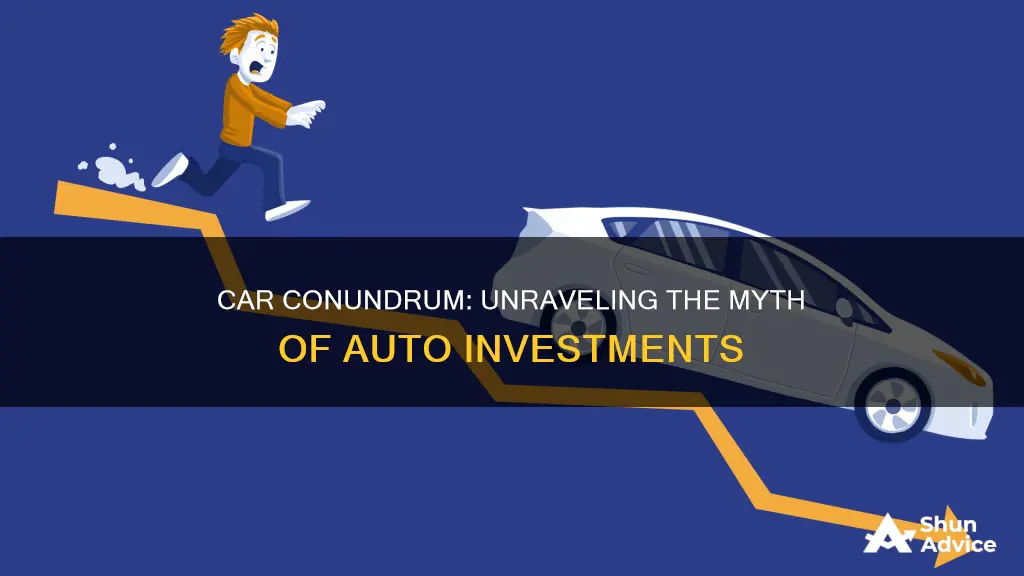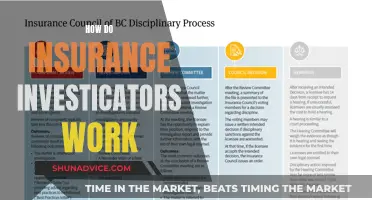
Whether buying a car is a good or bad investment depends on various factors and individual circumstances. Generally, a car is considered a depreciating asset, with its value tending to decrease over time. However, it's important to distinguish between an investment and a necessary purchase. While financial experts say that buying a car is one of the worst financial investments, you decide whether the utilities and benefits you receive from it outweigh the cost.
Cars often lose value due to wear and tear, mileage, age, and market demand, impacting their resale value. There are also maintenance and operating costs, such as insurance, fuel, repairs, and registration fees, which can add up. However, for many, owning a car is a necessity for commuting, transporting goods, or fulfilling obligations, and the convenience and utility may outweigh the financial considerations.
While cars generally depreciate, certain models or collectible vehicles can appreciate over time due to rarity, condition, and demand. It's challenging to predict market trends accurately. Your individual situation, lifestyle, location, and transportation needs play a crucial role in determining whether buying a car is a good investment for you.
In simple terms, if you buy a car for $50,000 and own it for five years, you'll lose around $750 per month or $9,000 per year. If you own it for only one year, your loss will be around $1,080 per month or $13,000. In actual terms, the loss is even higher due to inflation and increasing operating costs.
| Characteristics | Values |
|---|---|
| Return on Investment | Cars typically lose up to 20% of their value in the first year of ownership and continue to depreciate over time. |
| Quality of Life | A car can improve your quality of life by enabling you to travel for work and recreation. |
| Cost of Ownership | The average annual cost of owning a mid-priced new vehicle is $10,738, including gas, maintenance, repairs, insurance, and other expenses. |
| Alternative Transportation | Public transportation, ride-sharing services, or walking may be cheaper options depending on your location and travel needs. |
| Investment Alternatives | Stocks, bonds, mutual funds, retirement accounts, and real estate are examples of investments that may offer better long-term returns than a vehicle. |
What You'll Learn
- A car is a depreciating asset, losing up to 20% of its value in the first year
- Maintenance and operating costs, such as insurance, fuel and repairs, can be high
- A car may be a necessity for commuting, especially in areas with poor public transport
- Certain models or collectible vehicles can appreciate over time
- The cost of a car should not exceed 20% of take-home pay

A car is a depreciating asset, losing up to 20% of its value in the first year
While a car is beneficial to your quality of life, it won't provide a good return on your investment. The moment a vehicle leaves the dealership lot, its value decreases almost immediately. This rapid depreciation means that, in most cases, buying a car cannot be considered an investment.
For example, a $50,000 car will be worth only about $40,000 after one year and $20,000 after five years. This is because new cars depreciate faster than used cars, losing around 9-11% of their value as soon as they're driven off the lot. Over five years, the depreciation rate continues at approximately 15-25% annually, resulting in a total loss of around 60% of the car's original value.
The high cost of a new vehicle, combined with its rapid depreciation, makes buying a car a poor investment decision. However, it is important to note that a car can still be a necessary purchase for many people, providing convenience, mobility, and personal satisfaction.
Inheritance Dilemma: Invest or Pay Off Mortgage?
You may want to see also

Maintenance and operating costs, such as insurance, fuel and repairs, can be high
When it comes to car ownership, maintenance and operating costs are inevitable. These expenses can quickly add up, and it is essential to consider them when budgeting for a car. While the specific costs will vary depending on factors such as vehicle type, age, location, and driving habits, they typically include insurance, fuel, repairs, and regular maintenance.
Insurance is a significant expense for car owners, with the average driver in the US spending $2,299 per year for full coverage. The cost of insurance can vary based on personal factors such as age, marital status, credit history, and driving record. Additionally, insurance rates tend to be higher for luxury vehicles and newer cars.
Fuel costs are another major expense for car owners. The expense will depend on fuel type (regular, premium, or diesel) and driving habits. For example, Edmunds' True Cost to Own® (TCO®) calculator assumes 15,000 miles driven per year and considers the revised EPA mileage ratings for each vehicle.
Regular maintenance is crucial to keep your car in good condition and ensure its longevity. Mechanics typically recommend an overall check-up every 5,000 to 7,500 miles. This includes services such as oil changes, brake pad replacements, and fluid checks. While some maintenance tasks can be done at home, others require professional help. The cost of maintenance varies depending on the vehicle's make and model, with luxury and imported cars generally costing more.
Unexpected repairs are also a reality of car ownership. As vehicles age, the likelihood of repairs increases. Repairs can be costly, and it is essential to have savings set aside for such emergencies. According to AAA, drivers averaged 9.83 cents per mile on repairs and maintenance in 2023, assuming 15,000 miles driven per year.
In addition to these expenses, there are other costs associated with car ownership, such as registration fees, taxes, and financing costs. It is important to consider all these factors when budgeting for a car to ensure you can afford the ongoing maintenance and operating costs, which can be substantial.
The Future of ESG: What's Next for Sustainable Investing?
You may want to see also

A car may be a necessity for commuting, especially in areas with poor public transport
While a car is not a good financial investment, it can be a necessity for commuting, especially in areas with poor public transport.
A car can be essential for getting to work, and in some cases, it can even help you get a better-paying job. If you live in a rural area or a city with limited public transportation options, a car may be the only feasible way to get around.
For example, in the Midwest, many places have little to no viable public transportation. Towns tend to spread out rather than build up, so even in large cities, it can be challenging to get around without a car. Similar situations exist in the Southwest, with cities like Los Angeles, Phoenix, Las Vegas, and Albuquerque also having limited public transportation options.
Even in cities with decent public transportation systems, such as New York or Chicago, having a car can provide more flexibility and save time on commutes. It allows you to avoid the hassle of borrowing or renting a car when you need to travel outside the city.
Additionally, a car can provide benefits beyond just commuting. It can enable you to take on side jobs or freelance work that requires travel, such as a traveling salesperson or a freelance videographer. It can also provide personal benefits, such as the ability to go on road trips or just enjoy the simple pleasure of driving.
While a car may not be a good investment in the traditional sense of the word, it can be a valuable asset that significantly improves your quality of life. However, it is essential to carefully consider the costs of car ownership, including maintenance, insurance, and depreciation, especially when deciding between buying a new or used car.
The Evolution of Investing: How Old Financial Tools are Shaping the Future of the Market
You may want to see also

Certain models or collectible vehicles can appreciate over time
While most cars are not considered good investments due to their depreciation, certain models or collectible vehicles can appreciate over time. These cars are typically rare, have unique design elements, and have a loyal fan base.
1950s American Classics:
Known for their tailfins and chrome, these cars featured sleeker designs than their 1940s counterparts. Examples include the 1970 Chevy Camaro and the 1967 Volkswagen Beetle.
British and German Classics:
These overseas classics are known for their efficiency, reliability, and ability to retain value. Iconic brands include Jaguar, Aston Martin, Bentley, BMW, Mercedes, and Porsche.
1966-1967 Pontiac GTO:
The GTO is one of the most recognisable car names in the world, known for its powerful V8 engine and distinctive exterior styling. Its affordable pricing and widespread admiration make it a promising investment.
1992-1995 Porsche 968:
The Porsche 968 is currently experiencing the highest appreciation rate among Porsche coupes. Its pleasing aesthetics, finely tuned handling, practicality, and good fuel economy make it a desirable choice.
2001-2004 Chevrolet Corvette Z06:
The C5 Z06 is a high-performance sports car with growing demand across different age groups. Its limited production quantities and increasing insurance quotes indicate a potential rise in value.
1983-1997 Land Rover Defender:
The Land Rover Defender is a rare and highly sought-after vehicle, especially in the United States. Its enduring charm, availability of parts, and club support make it an attractive investment opportunity.
1979-1985 Mazda RX-7:
The first-generation RX-7 has gained interest from collectors due to its unique rotary engine and balanced weight distribution. Its straightforward maintenance and reliable performance contribute to its appeal.
2008-2015 Audi R8:
The Audi R8 combines exceptional performance and comfort, attracting enthusiasts from all generations. Its limited production and impressive motorsport heritage make it a likely candidate for continued appreciation.
2004-2010 Mercedes-Benz SLR McLaren:
The SLR McLaren is the first production car to feature a full carbon-fiber monocoque. When compared to other exotic cars from its era, it is considered highly undervalued, making it a potential classic.
2001-2010 Lamborghini Murcielago:
The Lamborghini Murcielago is a special supercar known for its iconic upward-swinging scissors doors and the introduction of the "e-gear" transmission. Its rarity, historical significance, and growing ownership by next-generation enthusiasts suggest continued value appreciation.
Retirement Account: Investing Beyond $5500
You may want to see also

The cost of a car should not exceed 20% of take-home pay
A car is a necessity for many people, but it is not usually a good investment. Cars depreciate in value very quickly, and the cost of ownership can be high. In the first year of ownership, a car can lose up to 20% of its value, and it will continue to lose value over time. This depreciation means that a car is not considered a good investment in the traditional sense.
However, a car can be a good investment in your employability and quality of life. It can enable you to get to work, travel for recreation, and increase your earning potential. When deciding whether or not to buy a car, it is essential to consider your budget and how much you can afford to spend on a car payment each month. Financial experts generally recommend that your car payment should not exceed 10% of your monthly take-home pay, and your total car costs, including gas, insurance, and maintenance, should not exceed 20% of your monthly take-home pay.
To determine how much car you can afford, start by calculating your monthly take-home pay. Then, multiply that number by 0.1 to find the maximum amount you should spend on your car payment each month. For example, if your monthly take-home pay is $3,000, you should aim to spend no more than $300 per month on your car payment. It is important to be realistic about how long you can afford to make this payment, as the excitement of a new car will wear off over time.
In addition to the monthly car payment, don't forget to factor in the other costs of car ownership, such as gas, insurance, and maintenance. These costs can add up quickly, so it is crucial to consider them when creating your budget. By following these guidelines, you can make sure that you do not overspend on a car and that your purchase fits comfortably within your financial means.
Movie Investors: Who Are They?
You may want to see also
Frequently asked questions
Yes, a car is typically considered a bad investment as its value tends to decrease over time. This is known as depreciation.
Cars depreciate in value quickly. In the first year of ownership alone, a vehicle can lose up to 20% of its value. This is due to a range of factors including wear and tear, mileage, age, and market demand.
While buying a car may not be a good financial investment, it can bring other benefits such as convenience, mobility, and personal satisfaction. A car can also help you earn more money, especially if your job requires you to travel or transport goods.
Yes, if you live in an area with decent public transportation, you may not need to buy a car. Other alternatives include leasing a car, ride-sharing, or using a taxi.
Assets that typically appreciate over time, such as stocks, real estate, or certain businesses, usually offer better potential for long-term financial gains compared to buying a car.







